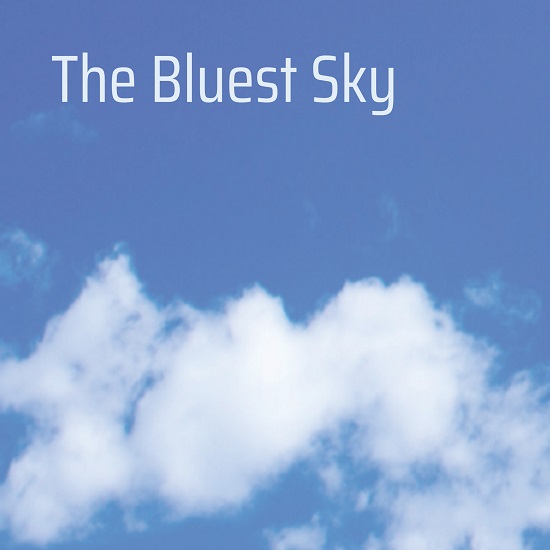
The Bluest Sky is the latest incarnation of Chuck Melchin, following his spell of four albums and two EPs as the cornerstone of celebrated Bean Pickers Union. The self-titled album is an attempt to move on from gentler introspective feel of his earlier work to creating “music that will make you want to drive your car faster”. With the nine songs featured here, he’s definitely succeeded; there’s only one slower, more contemplative, song on the album, but more about that later. The Laurel Canyon influence is strong on ‘The Bluest Sky’ with nods to Eagles, Neil Young and maybe even Evan Dando at times. The album was put together using the post-COVID method of musicians recording parts in their own studios before being mixed and mastered by Dave Westner; the results are organic and seamless.
The opening song, ‘Belly to the Bar’ sets the tone for the rest of the album with a country rock feel driven along by a pair of electric guitars under Melchin’s slightly fragile vocal as the story unfolds of a character trying to avoid being pulled into a rebound relationship. Most of the album’s songs are about personal situations although each has a slightly different twist. ‘The Girl It Took the Universe’ is a metaphysical look at the unseen forces moulding and pulling together two people over the aeons until the time is ripe for them to meet ending on a classic sixties sus4/sus2 progression, ‘Amy Jean’ is a straightforward karma and revenge song with a Southern rock feel that hints at the Allman Brothers’ Band’s ‘Jessica’ and ‘I Am James’ is a gentle country rock story of a man too shy to get himself noticed by a woman. ‘Drive Through Confessional’, with its mainly acoustic arrangement before a soaring electric guitar joins the mix, is a powerful piece of hometown nostalgia that turns around with the realisation that that reason for going back is the death of a loved one; it’s a powerful piece of work.
The two songs that step outside the personal may or may not be connected. The slow and melancholy ‘New Berlin’, its sadness punctuated by pedal steel fills, is a snapshot of a smalltown American town destroyed by a world economy that values only profit and scale; things can only get worse. There are a couple of references to classic American songwriters, John Fogerty’s ‘The Old Man Down the Road’ and Townes Van Zandt’s ‘Waiting Round to Die’ in the lyrics. It’s a powerful song with a storyline that could ultimately lead to the apocalyptic vision of ‘Bunkhouse’, the album’s penultimate song. The story of an unspecified rebellion and survival skills is played out over a Crazy Horse-style backing to maximum sinister effect.
Chuck Melchin and his collaborators have achieved the primary aim of making us want to drive faster while creating a bunch of varied and beautifully crafted songs. Job done.
‘The Bluest Sky’ is out now.
This is ‘Bunkhouse’:
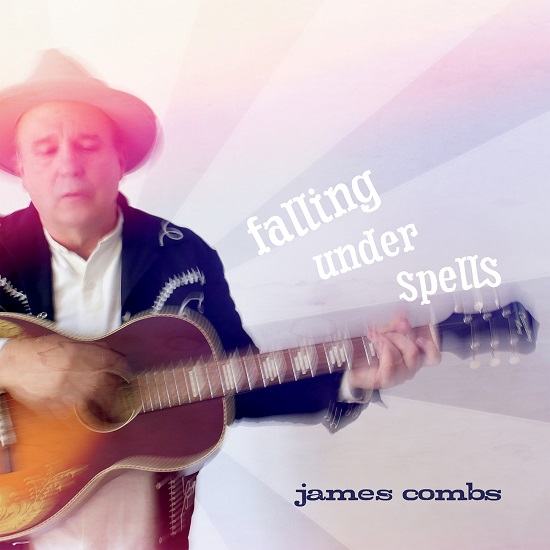
It looks like it may be some time before we escape the influence of the pandemic on recorded music, particularly in the areas of Americana and folk where the traditions of storytelling and reflecting the world around us are important. ‘Falling Under Spells’ isn’t crammed with references to COVID, but it’s certainly the basis for the album’s two closing songs, ‘Everybody Inside’ and ‘Nowhere Fast’, while the problems of twenty-first century America, including its forty-fifth President, are also themes that permeate the album, along with a few magical and mystical references.
The album’s opening song ‘Ruleless Games’ attempts to explain the unfairness of the world to a child and features some of the album’s sound signatures, the muted trumpet sound and the plaintive, higher register, Neil Young-like vocal of James Combs that’s echoed by the Crazy Horse feel of some of the arrangements. The horns are gentle and muted, not the strident stabs that are used to punctuate our soul classics; they’re more mariachi than Motown or Stax and contribute to the mellow feel of the album.
There are a few more nods in obvious and less obvious directions to other musical styles on the album. ‘Spells’ hints at The Byrds with some sixties tremolo guitar and maybe even a touch of The Stones’ ‘The Last Time’ (with added trumpet); all elements that you might have heard in referenced in the Americana canon. ‘Cut and Run’ is slightly different in that the reggae-tinged arrangement has more than a hint of the Gorillaz song ‘Clint Eastwood’ with piano and slide guitar. The title repeats like a mantra through the song as it urges us to abandon America’s twisted priorities (and their hype-man).
Despite the ominous and mystical feel of songs like ‘Strange Signs’ and ‘Spells’, ‘Falling Under Spells’, manages to generate a gentle wave of optimism for the future with songs like ‘True Believer’ and ‘Joy is Allowed’, a reminder that even in the most awful times, it’s ok to find joy somewhere. And any album that’s underpinned by the gentler side od Neil Young is fine by me.
‘Falling Under Spells’ is released in the UK on Friday May 27th on High Pine Steeple Recordings (1001).
Here’s a link to the video for ‘Strange Signs’ (featuring April Mann):
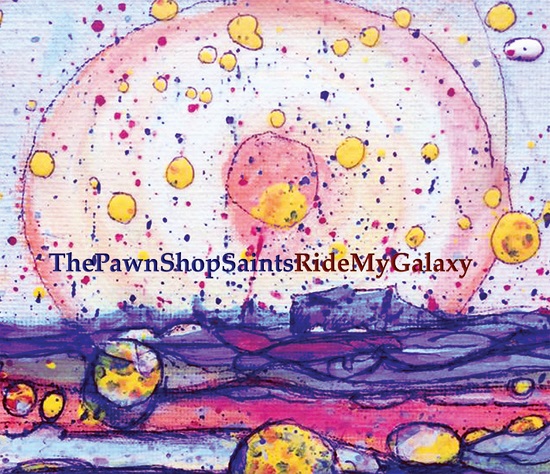
‘Ride My Galaxy’ looks like it will be one of three Pawn Shop Saints/Jeb Barry albums conceived in the pandemic to be released in the near future. The thing that unifies this album and will probably unify the remaining two albums is Jeb Barry’s voice. The songs range from the nostalgic West Coast country/rock of ‘Chevy Nova’ to the unrelenting gloom of ‘Ain’t No Mama Here’, but the cracked emotion of the voice that combines the vulnerability of Jackson Browne with the raw power of Greg Dulli is a constant.
There are the trademark Pawn Shop Saints acoustic staples aplenty on the album, but there are also a few elements of pop and rock pushing through the mix. There’s an opening studio chat on ‘Exits’ about getting the song down “mistakes and all” that sets the tone for the album. It’s much more about capturing the feel of the songs, rather than perfect performances. There’s no shortage of nods in the direction of iconic pop and rock figures and songs either. The I-VI chords at the start of ‘diane’ have a hint of Sam Cooke’s ‘Cupid’, while ‘Jenny Why’ has a hint of Danny Whitten’s ‘I Don’t Want to Talk About It’ and an arrangement that’s reminiscent of The Band. The paranoid menace of ‘Wicked’ is emphasised by a band sound that could be Crazy Horse at its most rough and ready. You get the picture; you can pick out the influences, while it’s all held together by great songwriting and Jeb Barry’s voice.
The album opens with a song that isn’t in typical Pawn Shop Saints territory; ‘Chevy Nova’ is unashamed seventies nostalgia. It’s a cars, girls, booze and drugs song, but in an innocent and naïve way. The closing song is firmly back in Pawn Shop Saints lyrical territory with a story of the pain caused by a broken relationship, but with a grungier sound that’s emphasised by a completely live studio recording.
‘Ride My Galaxy’ is an intriguing blend of the hard-edged dirt-poor Americana typified by the floods, crop failures and fever deaths of ’Ain’t No Mama Here’ and some new elements pop, punk, psychedelia and even nostalgia. It’s a good mix and creates a fascinating album.
‘Ride My Galaxy’ is out now Dollyrocker Records (DR20221). Here’s the video for ‘Exits’:
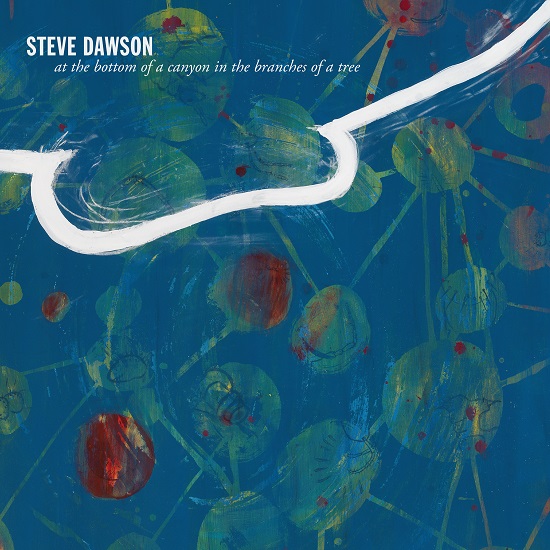
You can’t deny that the last couple of years have been difficult times for musicians, but the creative impulse won’t be stifled. Artists will take the clay that’s available and use it to fashion their creations. The Trump years spawned many memorable albums, then musicians found different ways of working through a pandemic with very little personal interaction to help the process. Steve Dawson’s raw material for “At the Bottom of a Canyon in the Branches of a Tree” came from a different place. Following a family tragedy, he took an extended sabbatical to decide whether he wanted to continue writing and performing. A songwriting retreat with Richard Thompson and Patty Griffin gave him the answer he needed and he found his clay (mainly) in his own personal experiences.
The album’s quite unusual in that it’s almost entirely the work of Steve Dawson; there are no co-writes or covers and only three other musicians make cameo appearances. Apart from Alton Smith’s piano on a couple of songs, Michael Miles’ banjo on “The Spaces In Between” and a Diane Christiansen vocal on “We Are Walking in a Forest”, every hook, lick and vocal is Steve Dawson. Quite apart from the instrumental versatility, showcases Steve’s vocal range from the easy, languid tenor into high falsetto. Steve’s voice evokes the classic American west coast country rock bands, sounding at times like Don Henley or Randy Meisner and there’s the occasional nod in the direction of Jackson Browne as the album pulls off the trick of sounding vaguely familiar while constantly introducing new ideas and sounds.
The settings for the songs are pretty laid-back, with nods towards sixties/seventies soul in “This Is All There Is”, psychedelia in “Beautiful Mathematics”, Crazy Horse in the title track and Jackson Browne on “Hard Time Friend”, which has a breakdown and restart two-thirds of the way through that feels a lot like the last section of JB’s “The Late Show” (one of Springsteen’s favourite recorded moments). The musical settings are incredibly varied, with some interesting keyboard instruments appearing (mellotron and dulcimer for a start), creating the perfect ambience for each of the songs.
The album could easily have been a fairly depressing experience, with songs about COVID deaths and forced positivity (“This Is All There Is”), dysfunctional families (“She Knew”) and the limitations of the forgiving gesture (“Forgiveness is Nothing Like I thought it Would Be”), but Steve leavens the mixture with the resoundingly upbeat “22 Rubber Bands”, a song about his love for his daughter, and “Hard Time Friend”, dedicated to his friend Diane Christiansen, celebrating the friends who are with us through times that are good or bad, happy or sad. There are two bonus CD and download songs which didn’t make the vinyl cut for reasons that have nothing to do with quality; “You’re Trying Too Hard”, which nails fake authenticity, and “However Long it Takes”, a reminder that we can always choose to see the good things in the world rather than the negativity which so often surrounds us.
Twelve tracks, fourteen if you buy the CD or download, and each one with an interesting arrangement and lyrics conveying ideas that are important to Steve Dawson, as they should be to all of us. It’s ironic to think that this bunch of songs were created by someone who had started to doubt his creative abilities.
“At the Bottom of a Canyon in the Branches of a Tree” is released on Pravda Records (PR6419) on Friday July 16th.
Here’s the animated video for “22 Rubber Bands”:
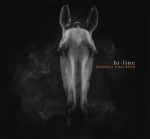 At the risk of spoiling the impact of this piece and giving readers the chance to skip out before the end, I’m going to tell you what I think of this album straight away; it’s a lovely piece of work and, if you’re keen on a bit of melancholy (among other things), you’ve come to the right place. “Hi-Line” is Amberly Chalberg’s debut album and a huge amount of inspiration and dedication are evident in the finished work. If you want something to make you cry, you’ll find plenty of that here, but you’ll also find a few things to make you smile as well.
At the risk of spoiling the impact of this piece and giving readers the chance to skip out before the end, I’m going to tell you what I think of this album straight away; it’s a lovely piece of work and, if you’re keen on a bit of melancholy (among other things), you’ve come to the right place. “Hi-Line” is Amberly Chalberg’s debut album and a huge amount of inspiration and dedication are evident in the finished work. If you want something to make you cry, you’ll find plenty of that here, but you’ll also find a few things to make you smile as well.
I touched on melancholy earlier and I just want to clarify something here. A lot of the songs on ‘Hi-Line’ are could be bracketed as ‘Heartbreak Country’. I don’t mean the sentimental, maudlin nonsense about having to shoot your horse or your dog, but songs about situations that real people face every day; broken relationships, deaths and fractured families. It’s real heartache and there’s nothing manufactured about it.
And one other thing. I’m a bit cynical about the practice of including a single swear-word to get a ‘Parental Advisory’ sticker; that’s definitely not the case here. There are five songs on ‘Hi-Line’ with swearing featured, and I’d argue that in each case it adds to the power of the lyric, particularly on the cautionary “Slippery Slope” with its economically-drawn connection between ‘needles and dope’ and ‘fucking for dimes’. Throughout the album, no matter how smooth the arrangement may be, there’s a gnarly realism underlying the whole piece, from the bar pick-ups and casual sex of “Whiskey Song” and “Drunk” to the vengefully protective, Crazy Horse-like “Family’s Just a Word”. The album has its lighter moments; “Crazy ‘Bout You” neatly channels “These Boots Were Made for Walking” and “Harper Valley PTA”, while “Lil Bit Country”, with its country-rock feel pokes fun at some of the country stereotypes.
I’m guessing most of us won’t be seeing live music for a while, so you could do a lot worse than have a listen to this great set of powerful songs from an artist who understands how to write heart-breaking songs that you’ll remember for all the right reasons.
“Hi-Line” is released in the UK on Friday March 20th.
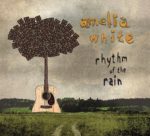 No, there’s no sign of a cover of The Cascades’ 1962 hit here; it’s all very much contemporary Americana. Amelia White’s style is very distinctive, and this is emphasised by the spontaneous feel of “Rhythm of the Rain”, which was made in four days at a very turbulent time in Amelia’s life. When she growls ‘Don’t think too much, people’ at the beginning of the title song, you can take a literal interpretation or a sarcastic one. Either works, it just depends wahich song you’re listening to. It’s certainly never going to be described a bundle of laughs, with “Yuma” and “Sugar Baby” dealing with addiction and “Sinking Sun” staring into depression.
No, there’s no sign of a cover of The Cascades’ 1962 hit here; it’s all very much contemporary Americana. Amelia White’s style is very distinctive, and this is emphasised by the spontaneous feel of “Rhythm of the Rain”, which was made in four days at a very turbulent time in Amelia’s life. When she growls ‘Don’t think too much, people’ at the beginning of the title song, you can take a literal interpretation or a sarcastic one. Either works, it just depends wahich song you’re listening to. It’s certainly never going to be described a bundle of laughs, with “Yuma” and “Sugar Baby” dealing with addiction and “Sinking Sun” staring into depression.
The musical stylings are pretty diverse, ranging from the adult-oriented-rock feel of “Sinking Sun” and “True or Not” to the laid-back Crazy Horse feel of “Supernova”. The album has a more raw, rockier edge than last year’s “Home Sweet Hotel”; although “Sugar Baby” opens with a menacing, ”Deliverance”-style banjo and eventually moves through the gears to “Sticky Fingers”-era Stones. Then there’s the title song, with a backbeat, swampy texture, and a sense of oppression and foreboding contrasted with the folky string band styling of the album’s closer which is enhanced by some nice Hammond organ.
There’s one song that stands out, even on an album packed with powerful songs and performances, and it’s a co-write with Lorne Entress and Lori McKenna. The skittering rhythms of “Said It Like a King” make the song feel like it’s rushing uncontrollably towards an unpleasant revelation; I may be looking for examples of this everywhere at the moment, but this song does sound like it might have been partly inspired by the leader of the free world. It’s about bullying and pulls together vignettes featuring a bully on the school bus, a hellfire preacher and a general delivering unpalatable messages which are accepted because each one “Said it like a king”. It’s a very clever lyrical idea, but the kicker comes in the final verse. No spoilers, you have to listen for yourself.
“Rhythm of the Rain” is an intense experience; even the opening song “Little Cloud Over Little Rock”, peeping into the lives of smalltown Americans having their Friday night fling to a soundtrack of Merle Haggard and George Jones is underpinned by the quiet desperation of the line ‘his friends are coming to drink their unemployment down.’ Is the album downbeat? Yep. Fraught? Sure. Compelling? Utterly.
“Rhythm of the Rain” is released in the UK on White-Wolf Records on Friday October 27th.
Amelia will be touring the UK in November. Check out the dates here.


